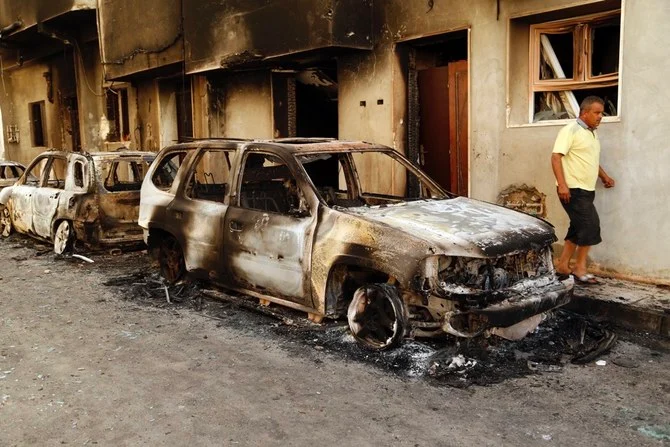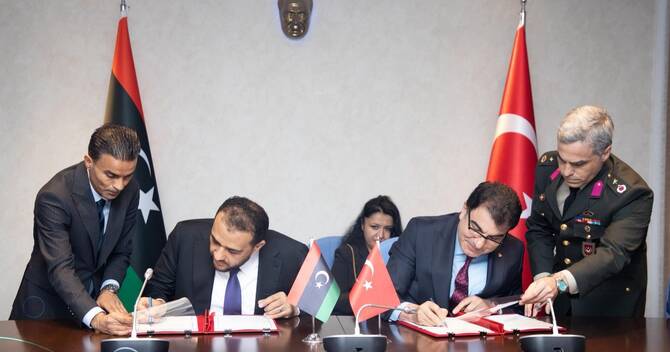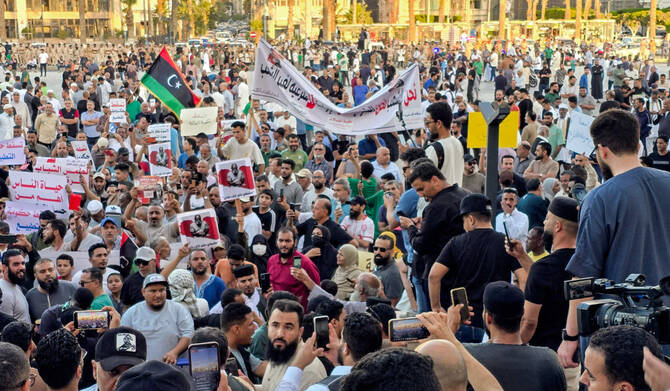Arab News
JEDDAH: Militias patrolled near-deserted streets in Libya’s capital on Sunday, a day after clashes killed 32 people and ended Tripoli’s months-long stretch of relative calm.
Flights resumed and shops reopened in Tripoli after clashes between backers of rival governments sparked fears of a major new conflict.
The Organisation of Islamic Cooperation called on all Libyan parties to stop the violence, protect civilians, and avoid escalation.
It also urged them to calm down and resort to dialogue to resolve differences at the critical juncture Libya was going through to spare its people the scourge of violence and avoid further dangers.
The General Secretariat of the OIC said it was following the security developments in Tripoli with great concern.
It reaffirmed the OIC’s commitment to the security, stability, and safety of Libya and its people.
UN Secretary-General Antonio Guterres called for an immediate halt to violence and dialogue to end the impasse.
The Health Ministry said that 32 people were killed in Saturday’s violence and 159 were injured.
Among the dead was Mustafa Baraka, a comedian known for his social media videos mocking militias and corruption.
He was shot reportedly while live-streaming on social media. It was not clear whether he was targeted.
The current stalemate grew from the failure to hold elections in December and Prime Minister Abdul Hamid Dbeibah’s refusal to step down.
The fighting came after months of mounting tension between backers of Dbeibah and Fathi Bashagha, whose rival administrations are vying for control of Libya.
Dbeibah’s administration, installed in the capital as part of a UN-led peace process last year, has prevented Bashagha from taking office, arguing that the next administration should be the product of elections.
Bashagha was appointed by Libya’s eastern-based Parliament earlier this year and is backed by eastern military chief Khalifa Haftar.
Bashagha, a former interior minister, had initially ruled out the use of violence to take power in Tripoli but subsequently hinted that he could resort to force.
Certain armed groups seen as neutral in the latest crisis moved to back Dbeibah this weekend to push back Bashagha’s second attempt to enter the capital.
Both sides exchanged blame while world powers appealed for calm.
On Saturday evening, Dbeibah posted a video of himself surrounded by bodyguards and greeting fighters backing his administration. Wearing a blue shirt and accompanied by his guard, he shook hands and took selfies with supporters. “We won’t leave this country to the scoundrels,” he said in the video posted on his Twitter account under the title “End of the Aggression.”
On Sunday, he said he would create two committees to survey the damage from the fighting.
Dbeibah’s Government of National Unity said fighting had broken out after negotiations to avoid bloodshed in the western city collapsed.
Bashagha denied such talks had taken place and accused Dbeibah’s “illegitimate” administration of “clinging to power.”






















